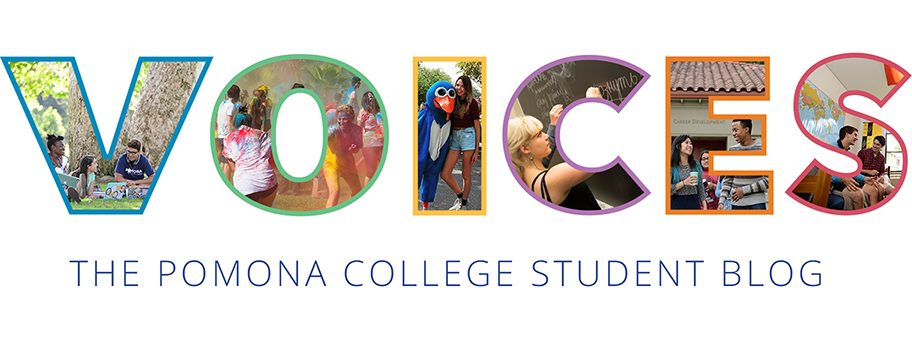I’ve known for a long time that I want to pursue some type of career in science. When I was in elementary school, I always told people I wanted to be a doctor. Sometime in high school, and especially during my first year at Pomona, that desire morphed into a desire to pursue a research-based career, specifically in neuroscience. That hasn’t changed–my passion for neuroscience is at an all time high–but I have come to a rather large realization: Science doesn’t stand alone. It can’t.
Up until about two weeks ago, I would say “I’m a science person.” I would outrightly claim that I “am just not a humanities person.” It’s true, I like science and math. My passion resides in proteins and neurons, not essays and books. Let me clarify that I don’t by any means want to seem like I didn’t respect the humanities. I know how important they are and how difficult humanities classes can be. I just used to think that a person had to be one or the other. I was under the impression that the world of academia was filled with people who were either science and math or humanities people. But these last two weeks have truly changed my perspective.
I can’t stress enough how lucky I feel to attend a liberal arts institution—a place that stresses a well-rounded education and that offers more interesting classes than I’d be able to take if I was a student for a decade. This semester in addition to my science classes, I am taking a class entitled “Feminism and Science”, offered by the philosophy department, but it could also be categorized as a gender/women’s studies class as well as a science class. I’ll admit that until two weeks ago, if I had my way, I probably would fill my schedule with science or math classes. But after four days of class, I can’t see myself without a humanities class in my schedule.
In “Feminism and Science,” we will be discussing not only the role of science in the world, but also the role that women play in the world of science and how feminism is crucial for scientific thought. So far we have discussed the underrepresentation of female scientists and how female scientists often have to make a choice between their career and motherhood. (Specifically, we discussed a case of a woman who had just received a huge promotion in a laboratory, only to be immediately fired when she told her boss she was pregnant.)
However, the lecture that stood out the most to me was the day that we talked about how the humanities and science are necessary to each other and to the world. We discussed how the world of science needs people who understand the greater implications of their actions: People who know about history, and who know how not to repeat it. People who understand the consequences of their actions or the ethics behind scientific endeavors. Yet, the humanities need the sciences because they need people who know how to question the status quo. The humanities need people who can recognize a problem and come up with a systematic way of testing for and solving that problem.
See, what I realized that day was that nobody should just be a “science person” or a “history person.” We all need a little bit of both to better succeed at whatever it is we want to do with our lives and to become better citizens of the world. This is the value of a liberal arts education—the opportunity to enrich ourselves through multiple avenues. I always just assumed I’d take the minimum number of non-science classes that were required of me. But not anymore. I can already tell that the few humanities classes I have taken here have changed me, as a person, more than I ever thought possible. The skills and knowledge I have learned in my science classes and the life lessons I’ve taken away from my humanities classes have combined to shape and continue to shape me into the socially aware adult I hope to become.
